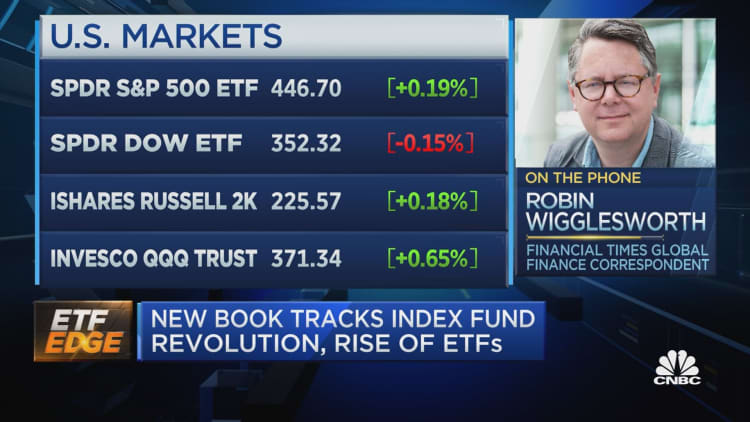stock picking or etf
Stock Picking or ETF: Navigating the Investment Landscape
The world of investing is vast and complex, with numerous paths to consider. A fundamental decision many investors face is: stock picking or ETF? Both strategies have their pros and cons, and the best choice often depends on individual circumstances, risk tolerance, and financial goals. This article explores the nuances of each approach, helping you understand which might be the right fit for you.
1. What are ETFs?
ETFs, or Exchange Traded Funds, are investment funds that track a specific market index, sector, or asset class. Think of them as baskets of stocks, bonds, or commodities. Instead of picking individual stocks, investors buy shares of the ETF, gaining exposure to a diversified portfolio. This diversification is often touted as a core benefit in stock picking or ETF comparisons.
How to understand ETF holdings
You need to scrutinize the composition of an ETF before investing. Its holdings and corresponding weighting directly influence how the ETF behaves. A simple stock picking or ETF comparison might be based only on historical data and net asset values; deeper investigation often unveils discrepancies. This should inform your decisions surrounding stock picking or ETF choices.
2. What is Stock Picking?
Stock picking, on the other hand, is a strategy of directly selecting specific stocks you believe will perform well over time. This meticulous selection process is essential in the world of stock picking or ETF. It's crucial to carefully evaluate different stock attributes for a balanced perspective in this investment style.
How to Choose Stocks
Stock picking requires intensive research. Understanding the company's financials, future outlook, competitive environment, and broader economic conditions is crucial to your stock picking or ETF selection. Understanding economic influences is critical for good stock picking or ETF allocation.
3. Stock Picking or ETF: Which is Less Risky?

Source: sinvestir.fr
The question of which is less risky—stock picking or ETF—is intricate. ETFs generally present a lower risk due to their diversification across a basket of stocks or assets. But a carefully chosen, concentrated portfolio of high-growth stocks chosen by skilled stock pickers may actually offer superior long-term returns while potentially being far more dangerous in the short-term. There's a balancing act in both stock picking or ETF strategies.
4. Time Commitment: Stock Picking vs. ETF
Stock picking is far more time-consuming than opting for an ETF. You need to dedicate hours researching company data, conducting competitor analyses, and staying abreast of market trends. This commitment level significantly shapes your options when considering stock picking or ETF as a possible strategy. Conversely, with ETFs, managing diversification is greatly simplified; this reduced administrative cost of stock picking or ETF management becomes attractive in certain scenarios.
5. Expertise Required: Stock Picking or ETF
Stock picking requires substantial expertise. A deep understanding of financial statements, market analysis, and company operations is fundamental to selecting well. In stock picking or ETF decisions, knowledge is crucial for assessing prospective gains and understanding the risks. On the other hand, ETFs offer relatively less expertise; an understanding of broad market trends can suffice. Yet understanding specific sector movements in your stock picking or ETF strategy are important considerations regardless of strategy.

Source: justetf.com
6. Accessibility and Costs: Stock Picking or ETF
ETFs are readily accessible through brokerage accounts. Stock picking, however, can involve additional complexities related to individual security purchase or selling. These variables also need careful consideration in a stock picking or ETF analysis. Costs in ETF investments are often streamlined, generally low-cost, whereas individual stock trades inherently involve commission expenses when considering stock picking or ETF alternatives.
7. Active vs. Passive: A Key Consideration in Stock Picking or ETF
The ETF route leans heavily toward the passive investment style. Its diversified portfolio largely depends on passive management mirroring an underlying market index. The decision of stock picking or ETF often comes down to personal investment philosophies. Stock picking takes an active stance requiring meticulous portfolio oversight, whereas an ETF follows a set pattern that can reduce required monitoring, yet it may lose specific, targeted gains, an essential nuance in considering stock picking or ETF options.
8. Returns and Potential: Stock Picking or ETF

Source: cnbcfm.com
Both approaches have their own return expectations. Skillful stock picking may result in exceptional returns from well-analysed stocks, but the possibility for substantial losses in poorly chosen picks exists as well. ETFs generally provide returns in line with their index's performance, minimizing extreme gains and losses. Yet in comparing stock picking or ETF results over time, significant variation can exist, impacting the best choice in investment contexts.
9. Risk Tolerance and Financial Goals
Ultimately, the decision between stock picking or ETF hinges on your risk tolerance and financial goals. If high potential returns entice you, taking calculated risks via individual stock selection might be suitable, assuming you have the resources to navigate complexities in a stock picking or ETF discussion. Conversely, ETFs, which aim to track a particular benchmark closely, mitigate individual stock price risks inherent in stock picking or ETF frameworks. Stock picking or ETF selection ultimately must fit your personalized circumstances.

Source: investingyoungster.com
10. Diversification, in Stock Picking or ETF
A core concept, both ETFs and diverse stock-picking portfolios can facilitate broader diversification in investment. Understanding stock picking or ETF considerations around these broader approaches often leads to effective portfolios.

Source: marketwatch.com
11. Long-term Goals vs. Short-Term Needs
For long-term investors aiming for portfolio growth, the higher reward potential of stock picking might justify additional efforts in comparison to an ETF. While in short-term investments with limited capital, ETF strategies are more appealing and potentially safer alternatives when considering stock picking or ETF methodologies.
12. How To Choose the Right Approach
The "right" strategy hinges on a meticulous assessment of your individual circumstances, time horizon, risk tolerance, and investment goals. Start by clearly articulating these aspects; if the idea of meticulous company analysis attracts you, stock picking or ETF might present greater reward potential, whereas a diversified, low-maintenance approach aligning with your investment timeline and goals may favor ETFs in considering stock picking or ETF investment models. Don't just passively consider stock picking or ETF choices, actively explore your alternatives!


